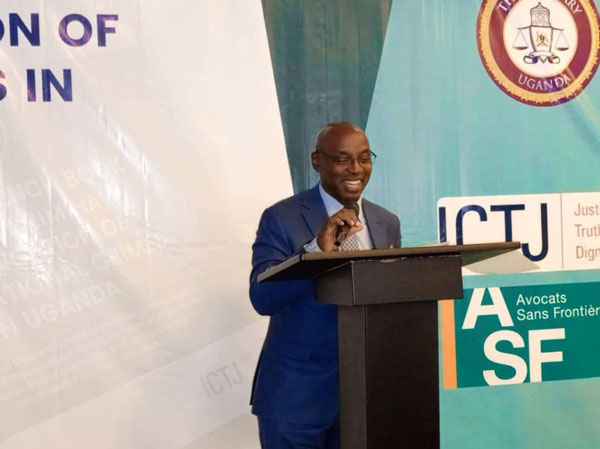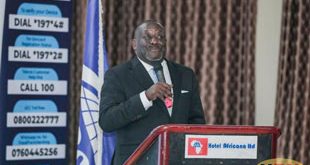
Kampala, Uganda | THE INDEPENDENT | The Judiciary is considering setting aside funds specifically for the trial of Thomas Kwoyelo, a former Lord’s Resistance Army (LRA) commander. The Principal Judge, Dr. Flavian Zeija, revealed this during the launch of the Judicial Bench Book on the Criminal Adjudication of International Crimes in Uganda.
The bench book, launched on Thursday in Kampala, was developed in collaboration with the late Retired Justice Elizabeth Ibanda Nahamanya, the Judicial Training Institute, the International Centre for Transitional Justice, and Avocates Sans Frontieres. It aims to enhance the capacity of legal practitioners and judicial officers in effectively prosecuting, adjudicating, and managing proceedings related to international crimes.
During the launch, Dr. Zeija explained that the trial of Kwoyelo has faced numerous challenges, including delays caused by the suspect contesting his trial, which reached the Supreme Court before being returned to the High Court International Division. The Prosecution has completed presenting evidence against Kwoyelo, and both parties are preparing submissions on whether he has a case to answer or is acquitted.
Dr. Zeija acknowledged that while efforts were being made to move the case forward, it remained tricky due to the potential diversion of funds for urgent matters. He expressed his commitment to allocating money for the trial on a quarterly basis, but unforeseen circumstances could affect its progress.
The delays in concluding Kwoyelo’s trial were a cause for concern raised by development partners, including the International Centre for Transitional Justice (ICTJ), Belgian Development Partners, Avocats Sans Frontieres, and Australian Development Cooperation.
Justice Mike Chibita, the Chairperson of the Governing Council of the Judicial Training Institute, attributed the delays to factors such as lack of cooperation from victims, unclear practices and procedures for international crimes cases, and corruption.
The head of the International Crimes Division of the High Court, Dr. Andrew Bashaija, noted that many lawyers in the country are not interested in practicing in the International Crimes Division court due to its unique legal procedures, which are not taught in law schools and universities. However, with the launch of the bench handbook, this issue is expected to be addressed.
Sarah Kasande Kihika, the head of ICTJ Uganda, highlighted the complexity of prosecuting international crimes and the challenges posed by frequent transfers and promotions of justices. To address this, the bench book serves as a quick reference point and helps stakeholders understand the procedures and rights involved in war crimes cases.
In honor of the late Judge Elizabeth Nahamanya’s legacy, her family, led by Dr. Sam Nahamanya, wants the judiciary to establish an initiative to inspire young girls to learn about international justice.
******
URN
 The Independent Uganda: You get the Truth we Pay the Price
The Independent Uganda: You get the Truth we Pay the Price


